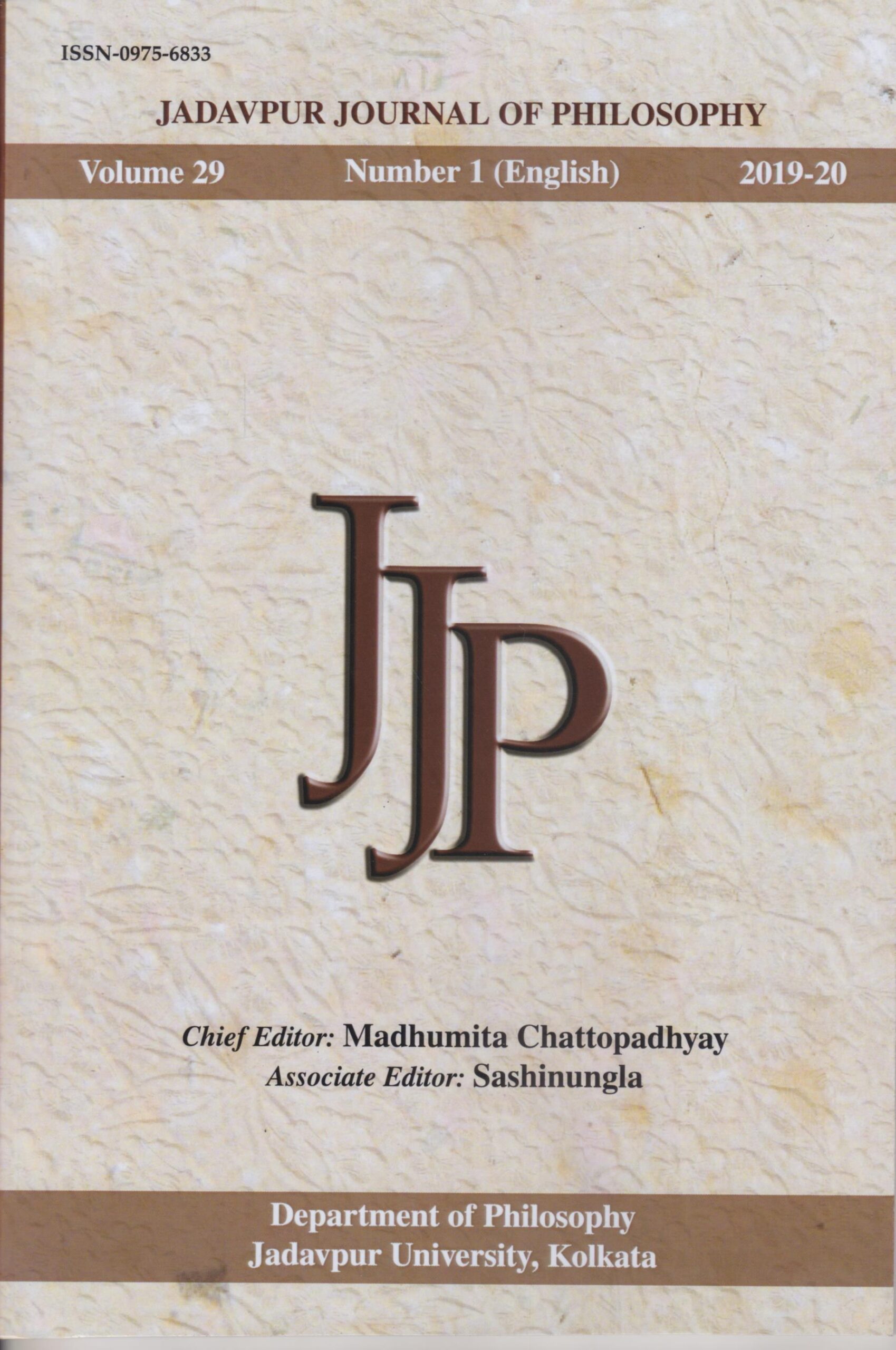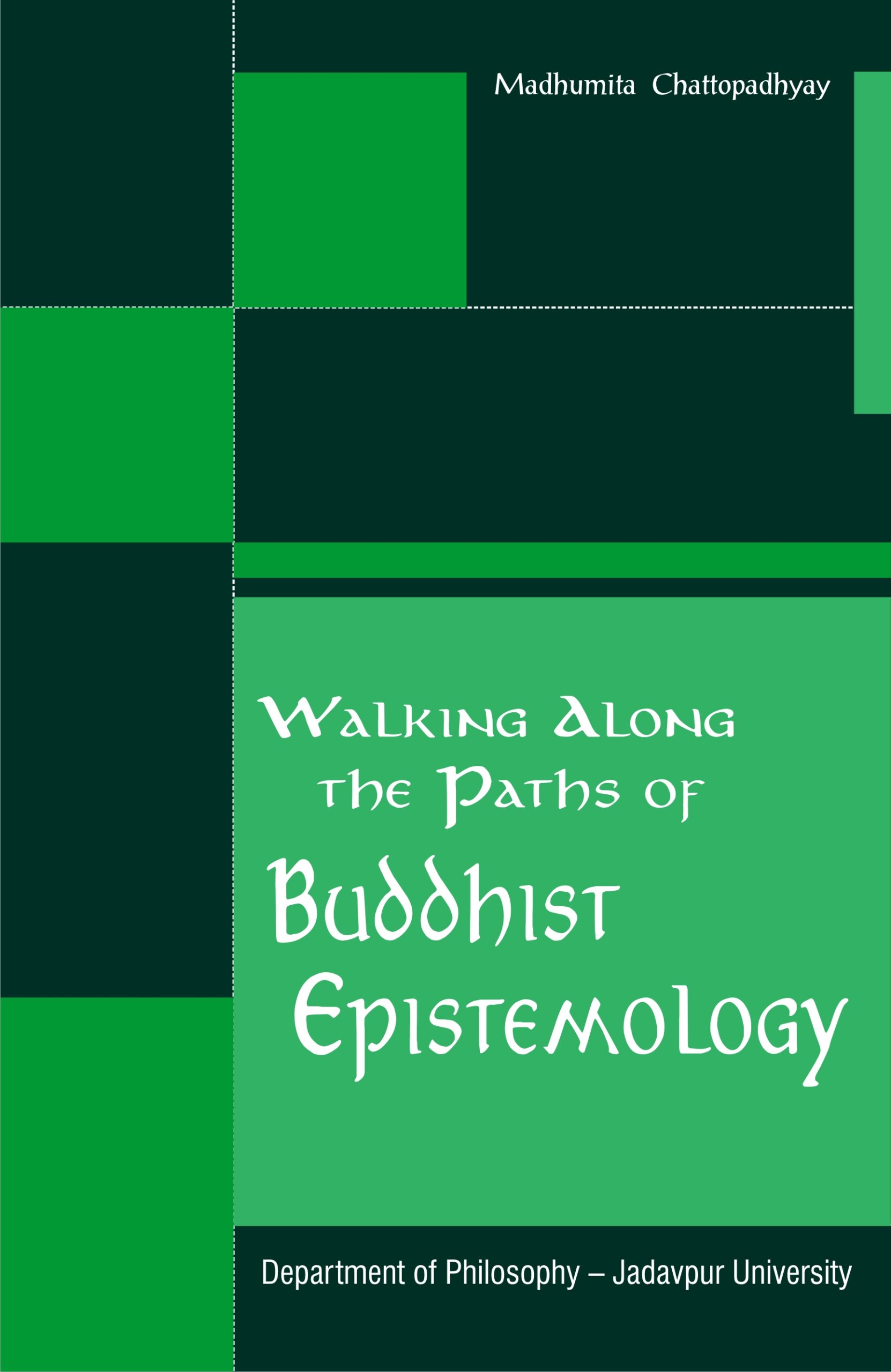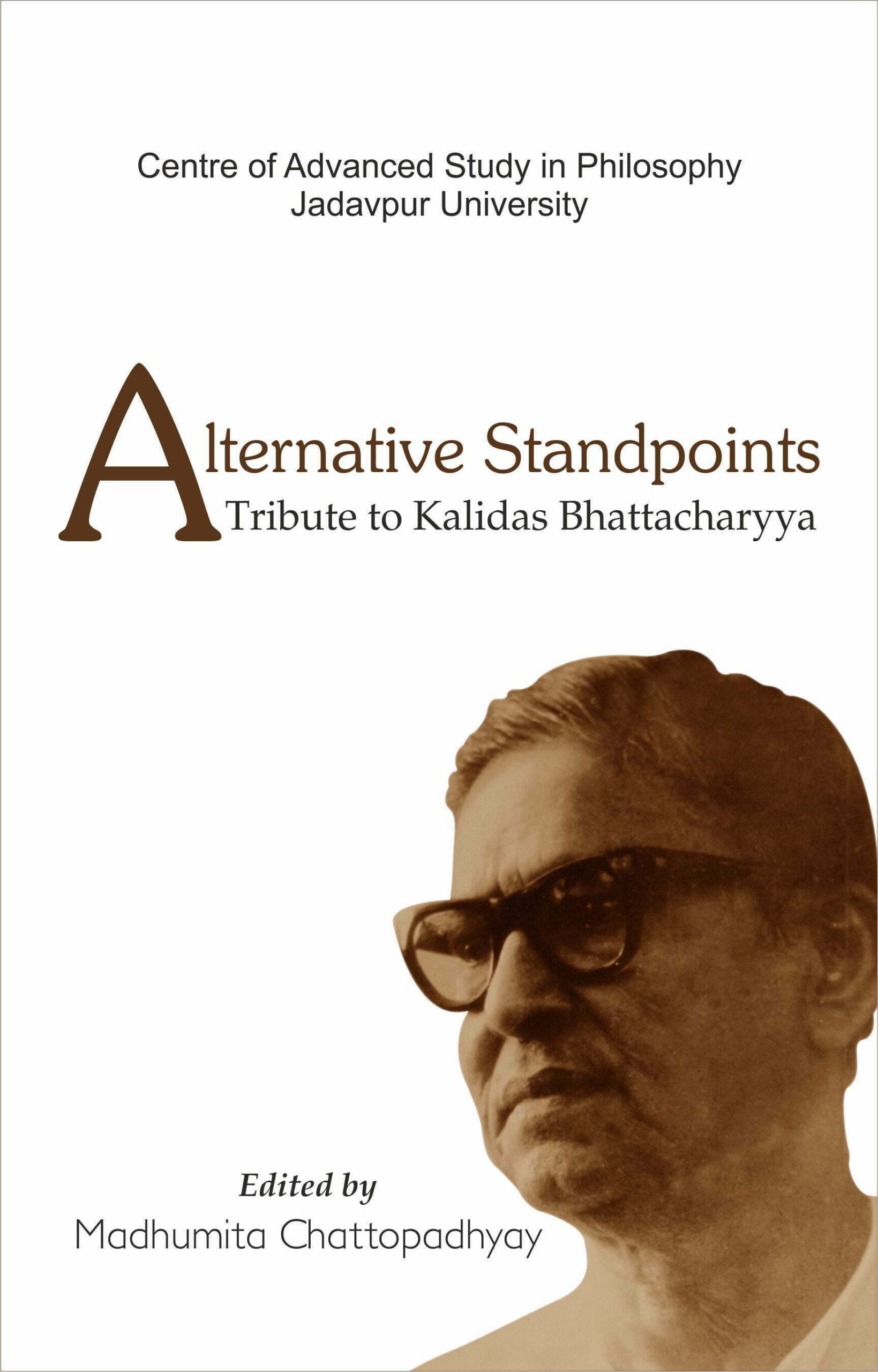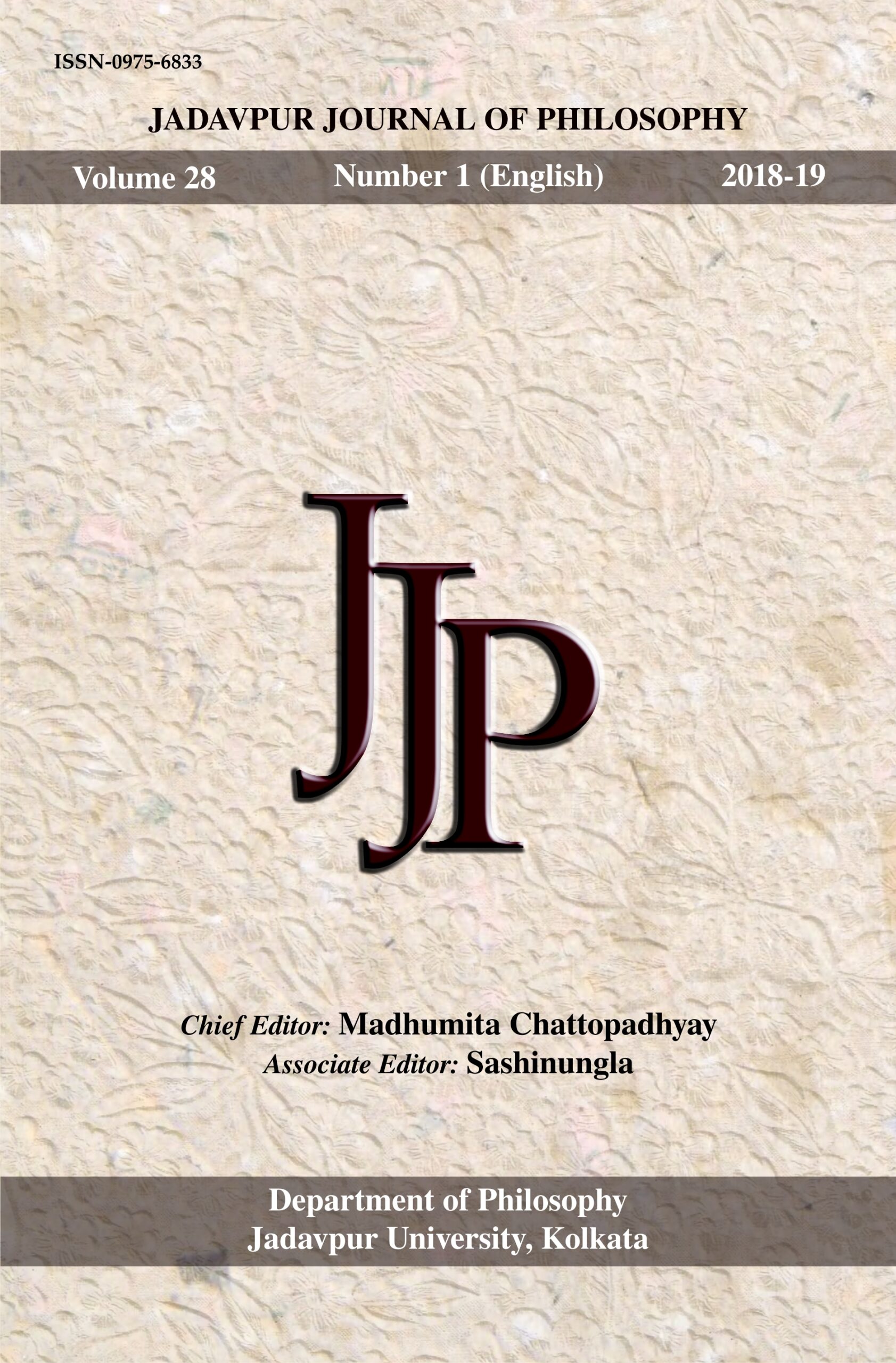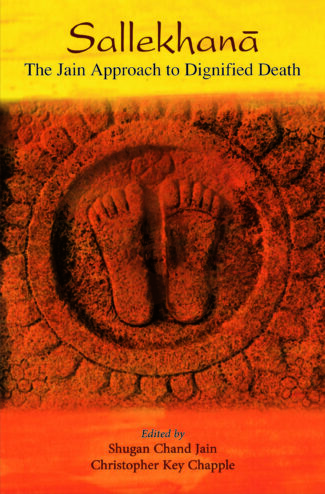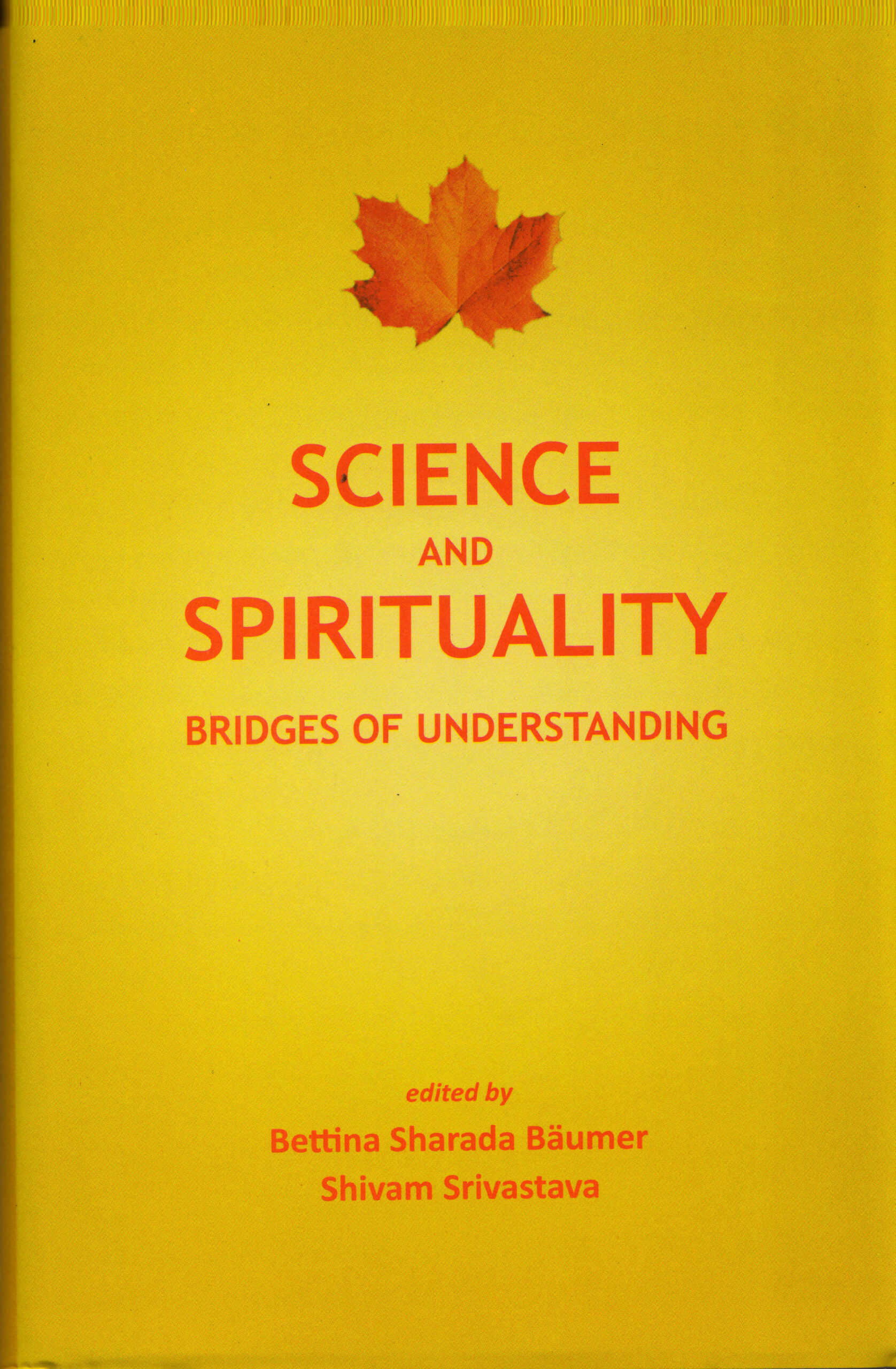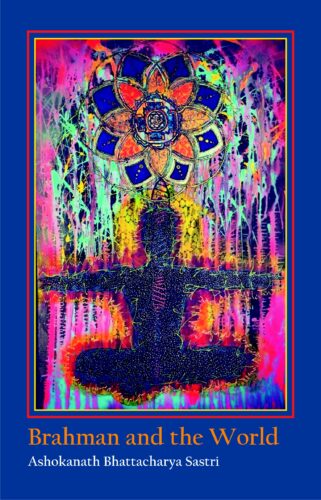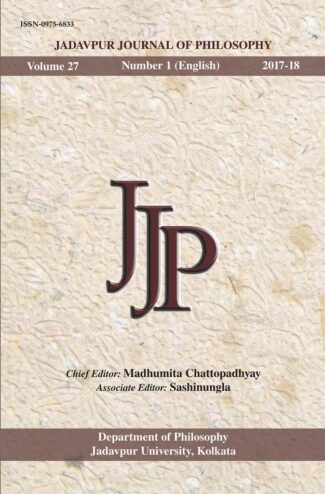

Jadavpur Journal No....
Jadavpur Journal No. 27
by: Madhumita Chattopadhyay , SashinunglaJadavpur Journal of Philosophy is a refereed, bi-issue journal, in English (No. 1) and Bengali (No. 2) published annually by the Department of Philosophy, Jadavpur University, Kolkata, India. The journal volume in Bengali is titled Darsan Biksa. The journal is devoted to the publication of original scholarly papers in any branch of philosophy. Its objective is to encourage contributions from scholars, dealing with specific philosophical problems connected with their respective fields of specialization.
$20.00
ISBN: 9788100000786
Year Of Publication: 2018
Edition: 1st
Pages : 143p.
Language : English
Binding : Paperback
Publisher: Jadavpur University
Size: 23
Weight: 250
Jadavpur Journal of Philosophy is a refereed, bi-issue journal, in English (No. 1) and Bengali (No. 2) published annually by the Department of Philosophy, Jadavpur University, Kolkata, India. The journal volume in Bengali is titled Darsan Biksa. The journal is devoted to the publication of original scholarly papers in any branch of philosophy. Its objective is to encourage contributions from scholars, dealing with specific philosophical problems connected with their respective fields of specialization.
- An Introduction to Jain Philosophy by: Parveen Jain $54.00
It is well-known that the Jain tradition has been extremely influential in the development of Indian thought and culture. The Jain tradition teaches that there is an interdependence of perception, knowledge, and conduct unified by an axiomatic principle of non-violence in thought, speech, and action. In this way, non-violence defines the core of the Jain tradition, which has had a profound effect on other dharmic traditions originating in India. Jain Dharma is so significant that in some ways it may be incomplete to attempt to understand other Indian traditions (such as Buddhism or Hinduism) without knowing the basics of the Jain tradition, since these other traditions developed in an ongoing dialogue with the insights and wisdom of Jain respondents and visionaries.
This book enables the reader to enjoy a comprehensive journey into the intricate world of Jain thought and culture in a way that is philosophical in its compelling rationality, deeply spiritual in its revelations, yet accessible in its language. The organization of this book allows the reader to engage in an overview of the central teachings of the Jain tradition, but also to ascertain the profundity of its depths. It can be read with equal efficacy in succession from beginning to end, or pursued by individual topics of interest to the reader. Either strategy will have the same effect: a systematic understanding of what the timeless teachings of Jain thinkers have to say about the universal issues of the human condition – and how we might understand our harmonious relationship with other living entities as a powerful and effective spiritual journey. - Sallekhana by: Shugan Chand Jain, Christopher Key Chapple, $40.00
Jainism regards life to be eternal. Recognizing that the soul can never die, but merely takes a new body, a careful tradition welcoming death through intentional fasting developed more than two thousand years ago. A legal challenge Rajasthan was put forward in 2013, suggesting that this practice is harmful and coercive and targets women in particular. For a short while Sallekhanā, which means the “thinning of existence,” was declared illegal. In response to this controversy, three conferences were convened by the International School for Jain Studies to explore the legal, religious, and medical aspects of this practice. Experts discussed the long history of the practice, attested to in epigraphs throughout India; the ways in which fasting to death has become an acceptable practice in the Western world; and contemporary instances of its observance in India. This volume presents an interdisciplinary approach to thinking about the end of life, from biomedical, historical, religious, and legal perspectives.
- Science and Spirituality by: Bettina Sharada Bäumer $40.00
A dialogue between science and spirituality is a necessity in our times where both, differences and mutual enrichment of the two great fields of human approach to reality, are taking place. This volume addresses this need from the perspective of different areas of science and spiritual traditions. The starting point is the intention of the founder of the IIAS, Dr S. Radhakrishnan, who saw that “both the practice of science and experience of spirituality are intimately related to being human”. Although much thought has gone into their relationship, the present volume intends to broaden and deepen the possibility of a harmonious integration, necessary to overcome the present-day crisis of humanity.
From the side of science, the contributors come from the fields of physics, plant biology, neuroscience, psychology, ecology and philosophy of science; and from the side of spirituality, following traditions and spiritual masters are represented: PÀtaðjala Yoga, Trika Œaivism of Kashmir, VedÀnta, Buddhism, Christianity, Theosophy, and Rabindranath Tagore, Swami Vivekananda and J. Krishnamurti. The deliberations included topics such as Awareness in plants, Neuroplasticity and Habit, appropriate use of terms such as “Consciousness” and “Energy” in different contexts, clarifying several issues concerning the on-going dialogue. The contributing scholars have built “bridges of understanding”, thus encouraging the reader to proceed further in this quest. - Brahman and the World by: Ashokanath Battacharya Sastri $20.00
“The Vedānta has been rightly called the Finest Fruit of Indian Thought and the Upaniṣads as the Finer Flowers. Vedānta grows out of the teachings of the Upaniṣads and passes into the various systems in the writings of Śaṅkara, Bhāskara, Rāmānuja, Madhva and Vallabha, the great founders of Advaita, Bhedābheda, Viśiṣṭādvaita, Dvaitādvaita and Śuddhādvaita, respectively. However, there is a perception among Orientalists that while the Upaniṣads favour the Monistic doctrine, Bādarāyaṇa’s Brahmasūtra fundamentally opposes it on some of the most crucial points.
The book thus delves deep into the philosophies of both Bādarāyaṇa and Śaṅkara in enunciating the essential features of Brahman and Its association with the world. It thus discusses topics such as what sort of cause Brahman is?, and what sort of material causality is to be ascribed to It? It also addresses the conflicting views on the nature of Brahman like that of Vivarttavāda and of Rāmānuja’s Saguṇa-Brahman.
This book proposes to take up the question of Universal Causation to examine thoroughly as how far it is right to regard Brahman as the Universal Cause and how far sūtrakāra himself lent his support to each of the inter-conflicting schools of Vedānta. This book should, therefore, benefit all who are devoted to the philosophic teachings of Advaita Vedānta and its preceptors.” - Action, Freedom and Responsibility by: Subasini Barik $30.00
This book, a work on human doing, analyses and applies three central aspects of human life – Action, Freedom and Responsibility – in the wide spectrum of the Philosophy of Mind. Reflections on these issues and their interconnections have a significant effect on the Philosophy of Value and application of ethical theories in practical life. This book even reconstructs the conceptual connection between action and freedom, on the one hand, and that between freedom and responsibility, on the other.
It also puts the concepts of freedom and determinism to critical test and reinterprets them from different angles and perspectives. The conventional doctrine of karma, based on the teachings of the Bhagavadgātā, is relieved from its usual deterministic presentation and a logically reasonable explanation is offered.
Human actions and human agency are central concepts in the philosophy of mind and action. Free will and responsibility constitute the bedrock of the moral life of the human agents and the book pinpoints that freedom is meant to undertake the goal-oriented actions. It is, therefore, focused on the enquiry into the various aspects of philosophy of mind, as well as the philosophy of value.


